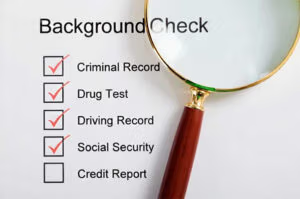Introduction
Hiring a private investigator (PI) can be a crucial step in resolving various personal and professional issues. However, it is essential to understand the legalities involved in hiring a PI to ensure that all investigations are conducted ethically and within the bounds of the law. This guide provides an overview of the legal considerations when hiring a PI.
Licensing and Certification
One of the first legal aspects to consider is whether the PI is properly licensed and certified. In most regions, PIs are required to hold a valid license to operate. This ensures they have met specific educational and professional standards. Additionally, licensed PIs are more likely to adhere to legal and ethical guidelines, providing peace of mind for clients.
Permissible Activities and Boundaries
PIs must operate within the legal boundaries set by local, state, and federal laws. This means avoiding activities such as hacking, wiretapping, and trespassing, which are illegal and can lead to severe consequences. Understanding what PIs can and cannot do legally is crucial for both the investigator and the client. Furthermore, staying within these boundaries ensures that any evidence gathered is admissible in court.
Confidentiality and Privacy
Confidentiality is a cornerstone of the PI-client relationship. Clients need to be assured that their information will be handled with the utmost discretion. PIs are legally obligated to protect client privacy and confidentiality, ensuring that sensitive information is not disclosed without proper authorization. Additionally, clients should feel confident that their personal details and the specifics of their case remain confidential throughout the investigation.
Contract and Agreement
Before commencing any investigation, it is important to have a formal contract or agreement in place. This document should outline the scope of the investigation, the services provided, and the associated costs. Moreover, it should detail the legal obligations of both parties, including confidentiality and ethical conduct. A well-drafted contract protects both the client and the PI, ensuring clarity and mutual understanding.
Case Study: A Legally Compliant Investigation
In a recent case, a client suspected that their spouse was being unfaithful. They hired a licensed PI to conduct the investigation. The PI followed all legal guidelines, using surveillance and public records searches to gather evidence. By adhering to legal and ethical standards, the PI provided the client with admissible evidence, allowing them to make informed decisions without legal repercussions.

Working with Law Enforcement
PIs often collaborate with law enforcement agencies, especially in cases involving criminal activity. Understanding the legalities of this collaboration is essential. PIs can assist law enforcement by providing information and evidence, but they must do so within legal boundaries. This partnership can be beneficial, but it requires careful navigation to ensure compliance with all legal requirements.
Here to Help
Hiring a PI involves navigating various legalities to ensure that investigations are conducted lawfully and ethically. Our team of professional investigators is committed to providing legal and ethical services, ensuring that all investigations are compliant with relevant laws and regulations. We prioritize our clients’ confidentiality and work diligently to provide reliable and admissible evidence.








